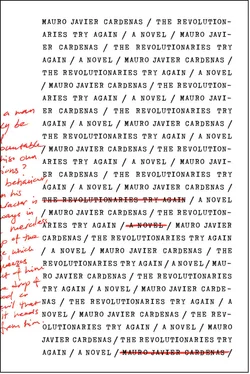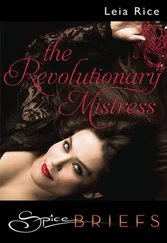—
After a twenty one year absence my father returned to the church. The pious boy I was back then had convinced him to attend Christmas Mass, and, according to my grandmother, his return that night was what led to the baby christ’s tears. Most in my family readily adopted my grandmother’s version, as I was to do in the years that followed, sharing it with my American friends as another example of the quaint superstitions of my Third World country, which would often prompt in them comparisons to eyewitness news reports of Virgin Mary sightings on trunks of trees or mortadella sandwiches. Of course I suspected my grandmother’s version was far too simple, but nothing ever compelled me to elaborate on it by implicating others or by including events that began long before that night.
Masha had forgotten to ask him about his grandmother’s baby christ, just as she’d forgotten to hand him his manuscripts at his farewell party despite the inordinate amount of time she spent reddening them with recommended readings, allusions, panels of question marks, imagining a late night at Antonio’s in which she was to hold forth, by Socratic questioning, like Akhmatova must have done with Osip — Akhmatova never piled obloquies on Osip, Masha — on the defects of his work. Did Antonio really witness a baby christ cry? Did his classmates at Stanford really mistake him for the son of the dictator of Ecuador? How could anyone expect her to have been the one to convince him to stay if he didn’t even share anything about his life in Ecuador?
—
I enrolled in piano lessons soon after graduating from Stanford and accepting a lukewarm job at an economic consultant firm with absolutely no ties to Latin American development, Antonio wrote, hoping that by writing about the life he had chosen in San Francisco he could counter his impulse to return to Ecuador, an impulse that he knew was imprudent to pursue outside of his imagination and that was extensively documented in literature as a terrible idea — just because I was born in a poor country doesn’t mean I’m obligated to return, right? I can become something else: why not a pianist? — so Antonio tried to write about his attempt to become a pianist after graduating from Stanford, beginning with his first piano lesson, Annie guiding his index finger to middle C, for instance, Annie tapping his knuckles with a number two pencil, him fumbling through his first le petit pieces to the delight of the Japanese premed students who happened to be studying in the common area where he’d found an upright piano and who happened to interrupt his clunkers with their variant of American snark, which of course drove him to practice longer and louder, and then he tried to write about how after just a year of practicing three hours a day he was able to play challenging pieces like Scriabin’s D Sharp Minor Etude, and then he tried to write about how exhilarating it had been to discover Olivier Messiaen, who used to voyage to canyons and forests around the world to transcribe birdsongs, some of which can even mimic the city sounds around them, a French composer called Olivier Messiaen, who meticulously inked all of his birds, which he called, without irony, little servants of immaterial joy, into an opera about San Francis of Assisi: at the North American premiere of San Francis of Assisi, from the balcony section of the War Memorial Opera House, I watched San Francis praying about what he calls the perfect joy, Leopoldo, in other words about the acceptance of suffering, which the orchestra and the ondes Martenots and the xylophones granted to him by performing an insistent, nervewrecking squawk of every single birdsong Messiaen had ever transcribed — can you imagine what Father Villalba would have said about calling such racket the Sermon of the Birds? — in unison all instruments mimicking a different birdsong, instruments with names as thrilling as the names of Messiaen’s composition methods: nonretrogradable rhythms, limited modes of transposition — why shouldn’t I be able to compose fiction or music or anything with names like that, Leopoldo? — and then a Russian painter called Masha said I can’t take this racket anymore, Antonio, and Antonio said to hell with these birds, let’s get out of here, standing up, the disapproval of the audience around him enlivening him so he laughed and tarried on purpose, pantomiming a clumsy, sluggish retreat along the row of wincing footwear, and then back at his apartment, emboldened by the champagne he’d ordered for them at Absinthe, Masha surprised him by taking off all her clothes except for her underwear, ambling toward him with her arms crossed to cover her chest, purposefully exaggerating her shyness so as to conceal her shyness, both of them outstretched on his sofa, the lights off in his apartment but on outside his windows, hearing the drunk tenors stumbling back to their station wagons because the night had been surprisingly warm so the living room windows were open, or perhaps he has ascribed the drunk tenors to that moment in retrospect because the San Francisco Opera’s parking lot happened to be in front of his apartment building on Fulton Street and late at night he could often hear the drunk tenors stumbling back to their station wagons, wailing their arias in self mockery, and as Antonio tried to write about his attempt to become a pianist he came to realize that just as he used to think of himself as the boy who taught catechism to the poor and vowed to return to rescue them (he still thinks of himself as the boy who teaches catechism to the poor and vows to return to rescue them), he now also thinks of himself as the Ecuadorian who listens to extravagant classical music, and isn’t it wonderfully freeing that no one here expects an Ecuadorian to know anything about Silvestrov’s postludes or Messiaen’s birdsongs?
—
I drink so I can bear talking to people, Antonio wrote. I acknowledge my conversational alcoholism. The more people converse with me, the more alcohol I am bound to imbibe. My liver, that most handsome of organs, was heard gossiping to my other organs about the absurdity of my social neurosis. Thank god my kidneys stood up for me and said shut up liver, you’re drunk again. So your narrator drinks at parties, Masha wrote along the margins, then what? Yet another tale about the agonies of partying in the USA? Why not include some of your actual travails?
One morning she’d commented on the expensive red leather pants strewn on his bedroom floor and he’d whispered to her, as if they could hear them, they’re uninvited guests, Mashinka, crashing for the night. Can you believe I allowed my cheap Acura Integra to be repossessed not only because I didn’t need it anymore but because I wanted to use the monthly payment to buy more clothes? Can you believe I was fired from my first job at an economic consulting firm for falsifying receipts for meals I did and didn’t have? Antonio behaved as if he’d come from money but that morning he told her his only income was his junior database analyst salary. He also told her that after all the startups in the South of Market ran out of cash and were forced to shutter their businesses, including the startup where he collected his paycheck, the only company hiring in San Francisco had been Bank of America. I interviewed for yet another database analyst position at Bank of America last week, Masha. A former marine who’s now in charge of managing twelve million checking accounts asked me about challenges I’ve faced. Weaknesses? Where do you see yourself in five years? Sir, to tell you the truth, sir, this job would be temporary: I’m going to become the liberator of the Americas so I can only stay twenty to forty years tops.
Months later, at his farewell party, she enticed him away from the other women by telling him she had carefully read his manuscripts, avoiding at first any references to the actual travails he’d shared with her. So what do you think, Mashinka? Any hope for me as a writer? Wait, let’s have another round of shots first. Antonio finished his shot and hers. She had forgotten that, although she didn’t hand him his manuscripts with her comments, she did tell him what she thought of them, paraphrasing most of the red comments she has been rereading while listening to Tabula Rasa. You claim to despise so called conventional fiction, she said to him, you mock me for listening to Bach instead of John Cage, and then you write this extremely conventional fiction about a miraculous baby christ who cries because of the corruption of the narrator’s father. She looked away while she said this, although she knows she’s softening her defiance so she can feel better about herself. She knew Antonio had been writing for less than two years. Would he have stayed in San Francisco if she had lied and told him his fictions showed promise? Hints of brilliance? You seem to purposely exclude any clues as to why you’re throwing all these words at us, Masha said. How can we distinguish the important and serious from the less important? Neither the festive atmosphere nor the shots lessened the impact of the harsh words she was foisting on him. Had she expected him to banter about her critiques? To refute her comments amusingly? He didn’t. He looked embarrassed that he’d disappointed her. I’m sorry, Antonio. I wish I would have told you back then to wait, keep going, no one can write decent fiction in less than two years. The other day the televisions at my gym were showing a special about astronauts, Antonio said. Did you know my neon gym is my one link to American pop culture? I was on the Treadmaster watching all those silent televisions, and in spite of their muteness I could easily tell what the shows and the commercials were all about because they had cued up all their moments for me. Here’s the moment of truth. Here’s the moment of cereal. Plus some of the televisions had subtitles. What does it mean, Masha? When all our narratives have been cued up for us? Here’s a moment for you: There was a radical old priest at my Jesuit high school and we were all in awe of him and for years I used to think of him as my mentor but I only spoke to him once, maybe twice. By the time I arrived at San Javier he had abdicated his role as a spiritual counselor because he thought my classmates and I were the problem. I wasn’t the exception, but for years I imagined he’d been my spiritual sensei, my Narcissus, my Mister Miyagi. But it doesn’t really matter, right? Our faux narratives affect us just the same. Here’s a narrative for you: one time I stayed on the Treadmaster for more than two hours because the music channel was showing a documentary about a former member of Menudo, a Latin American boy band that was popular when I was in middle school. This represents at least a hundred words I was not counting on. Come, Antonio said, pulling her to his bedroom, I want you to meet Alvin Lucier.
Читать дальше












